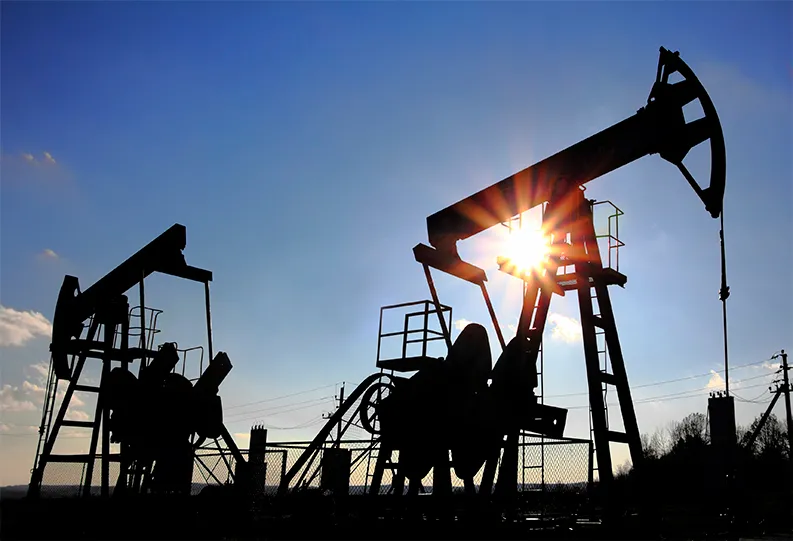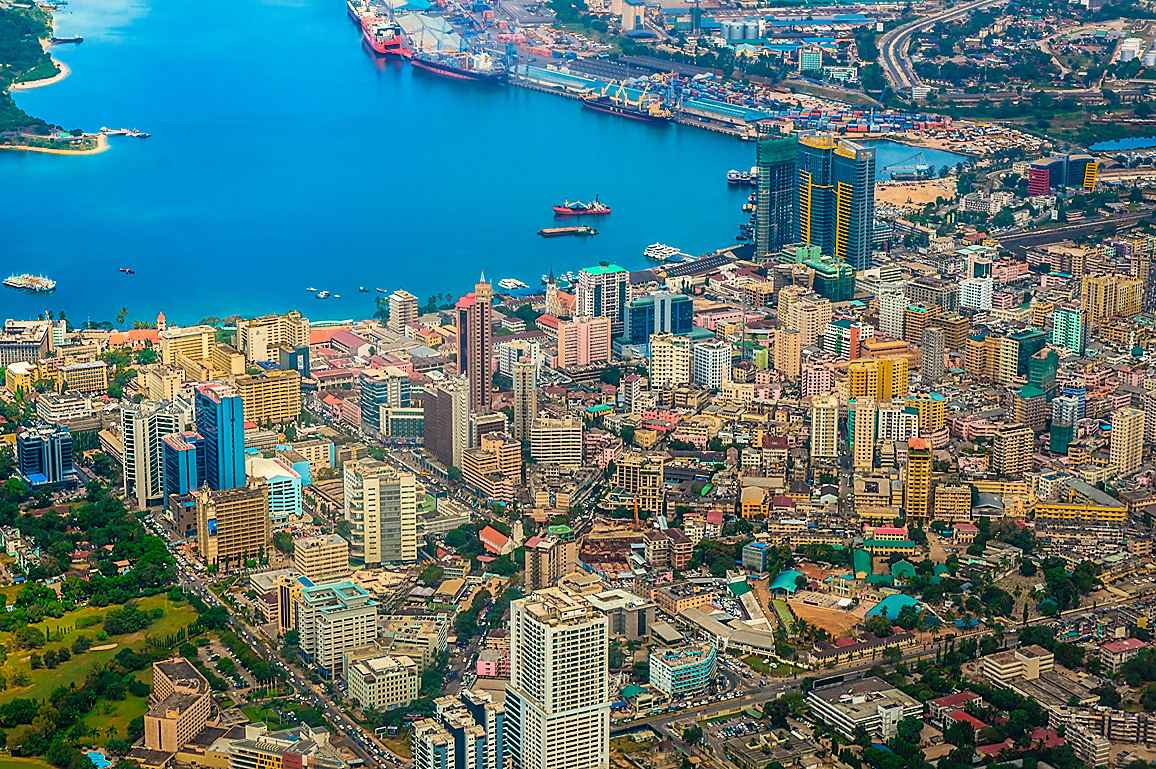The energy industry has been transforming itself taking cognizance of the global net zero target, however, oil and gas is still the major source of energy and contributing highly to the economy of Tanzania. The country has put in place a comprehensive legal and regulatory framework regulating the industry, the experts at AVC & Partners Advocates have put together a brief guiding paper for an overview.
The legal framework
1. The Petroleum Act, 2015
The Act provides an extensive legal framework for the exploration, development, and production of petroleum resources in Tanzania. It establishes the legal basis for licensing, the rights and obligations of petroleum operators, and the sharing of revenues between the government and the operators.
Specifically, the Act establishes entities such as the Petroleum Up-stream Regulatory Authority (PURA). This is a body corporate responsible for regulating and monitoring the geophysical exploration, exploration for and development of Petroleum, constructing and operating of wells, production of Petroleum, construction, operating and use of storage reservoir, construction and operation of pipelines and other special infrastructure for Petroleum.
PURA is also an advisory organ to the Minister responsible for energy in matters of oil and gas management and issuance of licenses i.e. Exploration licenses and Development licenses to the Tanzania Petroleum Development Corporation which in turn enters into Product Sharing Agreements with both local and foreign investors.
The Act also establishes of Oil and Gas Advisory Bureau which is a department within the Office of the President whose main responsibility is to advise the Cabinet on strategic matters relating to the oil and gas economy generally.
It also creates a National oil company, referred to as Tanzania Petroleum Development Corporation (TPDC) with the government having 51 percent shareholding ownership and the remaining 49% of the shares are in the Stock Exchange for public subscription. The major role of the company is to undertake Tanzania’s commercial aspects of petroleum in the upstream, midstream and downstream operations and participating interests of the government in the petroleum and natural gas industries. Moreover, TPDC acts as an advisory organ to the government on matters relating to the petroleum industry as well as participating in petroleum reconnaissance, exploration and production (development).
2. The Tanzania Extractive Industries (Transparency and Accountability) Act, 2015
This act promotes transparency and accountability in the extractive industries, including oil and gas. It requires disclosure of information regarding payments made by companies to the government, among other provisions. Therefore, the Extractive Industries, Transparency and Accountability Committee is established under the Act whose main duty is to ensure that there is transparency and accountability.
3. The Oil and Gas Revenue Management Act, 2015
The law establishes the legal framework for managing revenues generated from the oil and gas sector, including the establishment of the Oil and Gas Fund whose main purposes are receiving and disbursing oil and gas revenues, ensuring maintenance of fiscal and macroeconomic stability, guaranteeing financing of investment in oil and gas, and enhance social and economic development as well as to safeguard resource for future generations.
4. The Environmental Management Act, 2004
This act addresses environmental protection and impact assessment requirements for oil and gas projects, ensuring that operations are carried out in an environmentally sustainable manner.
5. The Occupational Safety and Health Act, 2003
This legislation focuses on promoting the safety and well-being of workers in various industries, including oil and gas.
6. Regulations
These include the Petroleum (Local Content) Regulations 2017 which aim to promote the participation of Tanzanian citizens and businesses in the oil and gas industry, encouraging the transfer of skills and technology to the local workforce. Other relevant regulations include the Petroleum (natural Gas Pricing) Regulations, 2020, the Petroleum (General )Regulation, 2011, the Petroleum (Natural Gas Midstream and Downstream) General Regulations, 2020, The Petroleum (Reconnaissance and Tendering) Regulations, 2019, Upstream Petroleum Regulatory Authority (Annual Levy, Fees and Charges) 2019, the Petroleum ( Bulk Procurement) Regulations, 2017

Regulatory framework
In Tanzania, there are three levels of regulatory framework that regulate and control all activities concerning petroleum and gas. These are:
- Minister responsible with matters of petroleum and gas
- Petroleum Upstream Regulatory Authority (PURA)
- Water Utilities Regulatory Authority (EWURA)
The Minister
Currently, the Minister responsible for energy oversees petroleum affairs as well. The ministry has created petroleum and gas division to streamline and oversee sustainable exploitation and development of the petroleum and natural gas resources in the country. The Minister’s functions are cross-cutting to all activities concerning petroleum in Tanzania by receiving advice from PURA and EWURA which are statutory boards serving the purpose of regulating petroleum and gas activities. The Minister is responsible to:
- Develop and implement policies and plans.
- Grant renewing suspend and canceling petroleum exploration and development licenses
- Inter into petroleum agreement on behalf of the government.
- Cause to be conducted inquiries on accidents or disasters caused by petroleum activities.
Petroleum Upstream Regulatory Authority (PURA)
PURA is an intermediary dealing with upstream activities and regulation of petroleum and gas. Petroleum Act defines upstream activities to comprise geographical exploration, exploration for and development of the petroleum, constructing and operating of wells, production of petroleum, construction, operating and use of storage reservoirs, construction and operation of pipelines and other special infrastructure for petroleum.
PURA also oversees issues like the management of petroleum areas including suspected areas. PURA has to prepare a reference map for petroleum areas which shall be known by the public. To ensure the management of the petroleum area, the Minister responsible together with PURA will work together to ensure proper management of resources for the public interest.
PURA grants permits for one to survey an area for petroleum (the Reconnaissance permit). The permit shall state the time and date in which the survey has to take place, the conditions for surveying, the area to which the permit relates and the duration of confidentiality of data collected. The time shall not be more than three years and PURA shall make notice to the public for such effect. The person(s) issued with reconnaissance permit has to also respect environmental laws. PURA has the power to terminate a permit if the holder of the license fails to obey the regulations.
Discovery of petroleum
When it comes to the discovery of petroleum, PURA and the Minister have to be notified of the discovery of the exploration area within forty-eight hours of the discovery. Minister must furnish PURA with particulars of discovery within thirty days from the date of discovery of petroleum. Thereafter PURA has to determine if the discovery has merit or otherwise within ninety days from the day of discovery.
Development license
The holder of an exploration license may apply for a development license to the Minister responsible for petroleum. Also, a person who is not the holder of an exploration license may apply for a development license. The application shall contain the applicant’s proposal of development and production of reservoir, a detailed proposal for construction of all facilities such as storage, transport and processing of petroleum.
Surface rights
The right of the surface is well protected such as the rights to cultivate and graze stock on an area in which exploration of petroleum takes place. The occupier under this scenario, will continue to enjoy surface rights but shall seek written consent from the holder of the exploration license in case he wants to erect a building on the surface. The Minister, if seems reasonable may grant the permit to the lawful occupier of the land to erect a building house. Fair and reasonable compensation has to be paid to the lawful occupier in case of any interference or damage is caused by the holder of the exploration license
Liquefaction, shipping and regasification
PURA is vested power of granting licenses for liquefaction, shipping and regasification.
Energy and Water Utility Regulatory Authority (EWURA)
The authority is created by the law, the Energy and Water Utilities Regulatory Authorities Act, It vested with powers to deal with midstream and downstream regulation of petroleum and gas in Tanzania. Downstream means transportation, distribution, storage, regasification and marketing of gas and petroleum. On the other hand, midstream activities means activities relating to petroleum processing, refining, liquefaction, storage and transportation to the point of supply or loading as a commodity. EWURA also maintains the National Petroleum and Gas Information System (NPGIS) which is to inform about the status of petroleum and gas in Tanzania. The regulatory functions of EWURA include:
i. Processing, transport, and storage
The authority is vested with power by the Petroleum Act to grant licenses for the processing, transport and storage of petroleum and gas. Before granting the license, EWURA shall look towards future development of the gas industry and its potential for competition, potential future market development. The licensee may provide third parties access to such license a good example is the transportation licensee who may provide a license to third parties to allow a smooth supply to buyers and users. In special circumstances, UWURA may if necessary grant license to third parties directly. Of importance to note is that all trucks for the transportation of petroleum and gas must meet the standard of the Tanzania Bureau of Standards (TBS).
For storage, the right to store oil and gas is vested in The National Oil Company on behalf of the government. However, a license for storage of Petroleum and gas may be granted by EWURA to a person who has reached the statutory requirements.
ii. Importation, transformation and distribution
The Minister responsible together with experts from EWURA makes rules to govern the distribution of petroleum and gas such as quality of petroleum products, safety of equipment for petroleum business and sale of petroleum in authorized premises. All is to ensure that distribution is under control and regulated correctly.
Conclusion
Generally legal regulatory framework of petroleum and gas in Tanzania is effective. The legislature from time to time ensures that they amend and alter some provisions to ensure smoothness in controlling and regulating petroleum and gas
Disclaimer
This article is only for general guidance based on the subject and is not to give professional advice. You should not act upon the information contained in this publication without obtaining specific professional advice. AVC & Partners, Advocates, its members, employees and agents do not accept or assume any liability, responsibility or duty of care for the consequences of anyone acting or refraining to act, in reliance to the information contained in this publication

